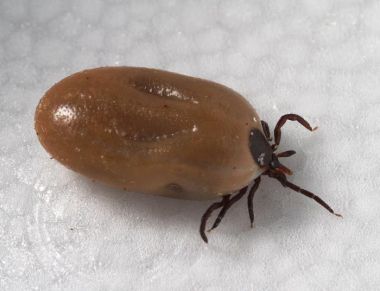Introduction

The Center for Public Integrity is examining the effects of climate change on infectious diseases carried by ticks and mosquitoes in the United States.
Across the country, Americans’ exposure to vector-borne diseases is changing and, at times, worsening. Scientists say that rising temperatures and increasing rainfall is influencing the spread of ticks and mosquitoes as well as their related illnesses. For instance, the black-legged tick — the species carrying Lyme disease and six other human pathogens — has marched at a steady clip northward. In states where it has long thrived, studies show the tick-biting season starting earlier and lasting longer. Public-health experts expect tick- and mosquito-borne diseases will emerge in new and unexpected places throughout the U.S. over this century.
To learn more, we’ve launched two surveys — one aimed at patients and the other at health professionals.
We want to understand the magnitude of tick- and mosquito-related illnesses here in the U.S., as well as their health impacts. You can help us learn more about the human costs associated with these conditions by completing one of these short surveys.
Patients, survivors or relatives:
Have you or someone you know contracted Lyme disease, anaplasmosis, babesiosis or another tick-borne disease while in this country over the past decade? We’re interested in talking to patients and survivors diagnosed during that time with these or other tick-related illnesses — including “emerging” ailments like Alpha Gal syndrome, Heartland Virus and Bourbon Virus. We’d also like to hear from those sickened by West Nile Virus, Zika Virus, Chikungunya and dengue fever after being bit by a mosquito in this country over the same period. We’re interested in learning about your diagnosis and treatment, as well as government education and prevention efforts in your area.
Health professionals
Are you a health professional who has firsthand experiences with these tick- and mosquito-borne diseases? We want to learn how your health departments, public health agencies and care providers are preparing for and responding to tick- and mosquito-borne diseases.
Take our health professionals survey
We will not share your personal information in a story without your permission, but instead aim to aggregate survey responses to try to quantify the costs and understand the consequences.
Your responses will help inform our reporting on an important yet often overlooked facet of the warming climate here in this country so we can shine a light on the effect it is having on Americans’ health.
Thank you for your participation and support of this investigation!
Read more in Environment
Environment
As disease-bearing ticks head north, weak government response threatens public health
The CDC says rising temperatures are partly to blame for the tripling of mosquito-, tick- and flea-borne illnesses from 2004 to 2016, but Maine’s governor, a climate skeptic, is tying health officials’ hands
Environment
Scott Pruitt is out, but the direction of the EPA isn’t likely to change
Andrew Wheeler, who takes over as acting head of the agency, is a former coal lobbyist

Join the conversation
Show Comments